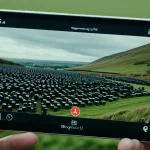Major Impacts of Technology on Daily Life in the UK
Technology in UK daily life has reshaped communication, transport, healthcare, education, work, and shopping, creating a modern UK lifestyle marked by convenience and connectivity. The digital transformation UK has introduced new routines, such as online shopping replacing traditional store visits and telemedicine enhancing healthcare access. Public transportation systems now benefit from smart ticketing and journey planning apps, making daily commutes smoother and more efficient.
The UK government has played a vital role in accelerating this digitalisation. Initiatives like the rollout of nationwide high-speed internet and digital public services encourage seamless interactions between citizens and institutions. In healthcare, NHS digital health platforms allow patients to book appointments and access records online, improving accessibility and reducing waiting times.
Have you seen this : What role does government policy play in UK tech growth?
Work habits have shifted significantly, with remote work UK becoming mainstream thanks to digital productivity tools and reliable connectivity. Education in the UK has embraced e-learning UK platforms, transforming traditional classrooms into digital classrooms where both teachers and students engage remotely and interactively. These advances illustrate how digital transformation UK is deeply woven into everyday aspects of life, making the modern UK lifestyle increasingly digitised and efficient.
Communication and Social Connectivity in the UK
The rise of digital communication UK has transformed how people in the UK connect daily. Instant messaging apps, video calling platforms, and social media UK have become central to maintaining family relationships, friendships, and broader community ties. Platforms like WhatsApp and Messenger offer real-time conversations, while video calls provide face-to-face interaction, crucial for those living apart.
Also to read : How Can Artificial Intelligence Transform the Future of the UK Technology Sector?
How has digital communication UK reshaped social dynamics? It has increased accessibility to distant contacts and enabled instant sharing of moments, but also introduced challenges such as screen fatigue or online privacy concerns. Social media UK plays a dual role in connecting communities and shaping public discourse. Post-pandemic surveys show a significant rise in the average daily use of social media UK, reflecting its embeddedness in daily routines.
Remote connectivity allows flexible socialising beyond geographical boundaries, supporting diverse communities and special interest groups. These technologies have also been instrumental in social support networks during times of isolation or crisis. Despite these benefits, understanding digital wellbeing remains vital to balance online and offline interactions for a healthy modern UK lifestyle.
Overall, digital communication UK fosters inclusivity and immediacy in interactions, reinforcing connections while shaping new social norms across the UK.
Transport and Urban Mobility Transformation
Technology in UK daily life has significantly reshaped transport, introducing smarter, more efficient systems. Smart transport UK solutions enhance public transit with real-time tracking, contactless ticketing, and integrated journey planning apps, making travel more convenient and reliable. These advancements reduce congestion and ease commuter stress, fitting naturally into a modern UK lifestyle.
The rise of ride-sharing UK platforms has added flexibility, offering alternatives to car ownership and traditional taxis. Services such as Uber and local carpooling apps provide on-demand transport, easing urban mobility challenges. This shift also encourages environmental benefits by optimising vehicle usage and reducing emissions.
Electric vehicles UK contribute to greener transport options, supported by expanding charging infrastructure and government incentives. Their adoption reflects the digital transformation UK aims for, promoting sustainable travel habits while lowering carbon footprints.
Cycling and micro-mobility solutions have grown, with smart bike-sharing schemes linked to digital apps enhancing accessibility in cities. These technologies encourage active transport and reduce reliance on cars, improving urban air quality and health outcomes.
Together, these innovations illustrate how technology in UK daily life transforms not just how people move but also shapes broader societal norms around convenience, sustainability, and connectivity in transport choices.
Healthcare Advancements and Accessibility
The integration of healthcare technology in the UK has revolutionised patient care through NHS digital health services and telemedicine UK. NHS digital platforms enable patients to book appointments, access medical records, and receive test results online, significantly reducing waiting times and administrative burdens. This shift reflects the broader digital transformation UK aims to enhance accessibility and efficiency in healthcare delivery.
Telemedicine UK has expanded notably, especially in rural areas where physical access to clinics can be limited. Video consultations and remote monitoring via health apps provide continuous care, allowing patients to manage chronic conditions from home. Wearable tech further supports this trend by offering real-time health data to both patients and providers, improving early detection and personalised treatment plans.
Government initiatives have been instrumental in funding and promoting these technologies, ensuring NHS digital health and telemedicine UK services reach diverse populations. These advancements not only improve individual health outcomes but also contribute to the modern UK lifestyle by making healthcare more convenient and integrated with everyday routines.
Together, these innovations highlight how technology in UK daily life reshapes healthcare accessibility, reducing barriers and fostering a more responsive medical system aligned with digital transformation UK goals.
Education and E-Learning Integration
Advancements in e-learning UK have transformed traditional education by integrating digital classrooms and online education UK platforms extensively. Schools and universities now widely use interactive software, video lessons, and digital assessments, enabling flexible learning beyond physical classrooms. This shift supports varied learning styles and helps students access resources anytime, enhancing overall engagement.
Government initiatives have further accelerated digital transformation UK within education. Projects providing devices and internet access aim to bridge digital divides, ensuring equity in remote learning opportunities. For example, funding for tablets and broadband in underprivileged areas improves participation and inclusivity across regions.
The rise of online education UK during the pandemic showcased the resilience and adaptability of the education system. Studies highlight benefits such as personalised pacing and diverse content formats, though challenges remain in maintaining motivation and social interaction remotely. Teachers increasingly adopt digital tools for collaboration and feedback, enhancing the quality of instruction.
In sum, technology in UK daily life profoundly reshapes education. Embracing e-learning UK and digital classrooms, supported by government-led efforts, fosters a modern UK lifestyle where learning is more accessible, flexible, and tailored to individual needs.
Work, Productivity, and Flexible Employment
Technology in UK daily life has notably reshaped work patterns, driving a surge in remote work UK and hybrid office models. The digital transformation UK has enabled this shift, with widespread adoption of digital productivity tools like video conferencing, cloud collaboration platforms, and project management software. These tools facilitate seamless communication and task coordination regardless of location, enhancing flexibility and productivity.
How has remote work UK affected employee wellbeing and job markets? Employees often benefit from improved work-life balance, reduced commuting stress, and greater autonomy. However, challenges such as digital fatigue and isolation require balanced approaches to maintain mental health. Employers increasingly use UK work technology to monitor performance and support staff through virtual engagement strategies and mental health resources.
Automation and AI integration further transform job roles across sectors by streamlining routine tasks and enabling employees to focus on complex problem-solving. This evolution supports career development but also demands continuous upskilling. Government initiatives promoting digital skills training complement these changes, aiming to prepare the workforce for a rapidly evolving employment landscape.
In essence, technology in UK daily life empowers more adaptable, efficient work environments, contributing to the modern UK lifestyle by harmonising productivity with flexibility and wellbeing.
Shopping, Payment Methods, and Consumer Habits
The rise of UK online shopping has significantly altered consumer behaviour, embedding convenience into daily routines. Platforms offering next-day delivery and broad marketplace selections allow shoppers to access products quickly and effortlessly. This transformation reflects the broader digital transformation UK, which fosters a modern UK lifestyle prioritising speed and choice.
Consumer habits in the UK increasingly rely on contactless payments UK, supported by widespread adoption of debit and credit cards with tap technology. Digital wallets and fintech services further streamline transactions, making payments faster and more secure. Surveys indicate a sharp rise in contactless usage, especially in urban areas, reinforcing this shift in purchasing patterns.
Major UK retailers have adapted by enhancing e-commerce platforms with personalised recommendations, subscription services, and seamless checkout processes. These innovations not only improve user experience but also deepen customer engagement, driving sales growth.
This evolution represents technology’s dual impact on shopping—simplifying consumer access while encouraging new spending behaviours. By integrating UK online shopping, contactless payments UK, and evolving e-commerce trends UK, technology reshapes how UK citizens interact with the retail sector every day.
Societal and Cultural Shifts Driven by Technology
Technology in UK daily life has sparked profound societal and cultural shifts, shaping how people engage in work, leisure, and social participation. The emergence of a digital society UK has redefined community interactions beyond physical spaces, fostering new forms of cultural expression and access to information. This digital culture UK supports inclusivity but also presents challenges around privacy and screen time management.
To address these challenges, the UK government has championed UK digital inclusion initiatives aimed at bridging the digital divide. Programs focus on expanding broadband access, especially in underserved regions, and promoting digital literacy among older adults and disadvantaged groups. Such efforts ensure wider participation in the digital economy and society, making the modern UK lifestyle more equitable.
The cultural impact of technology is evident in creative industries, entertainment, and education, where digital platforms enable broader access and collaboration. However, concerns persist about maintaining privacy and combating misinformation, emphasizing the need for ongoing digital skills development. In balancing these aspects, technology and culture UK together drive an evolving society, highlighting the importance of responsible use and inclusive policies to sustain the benefits of digital transformation UK.




